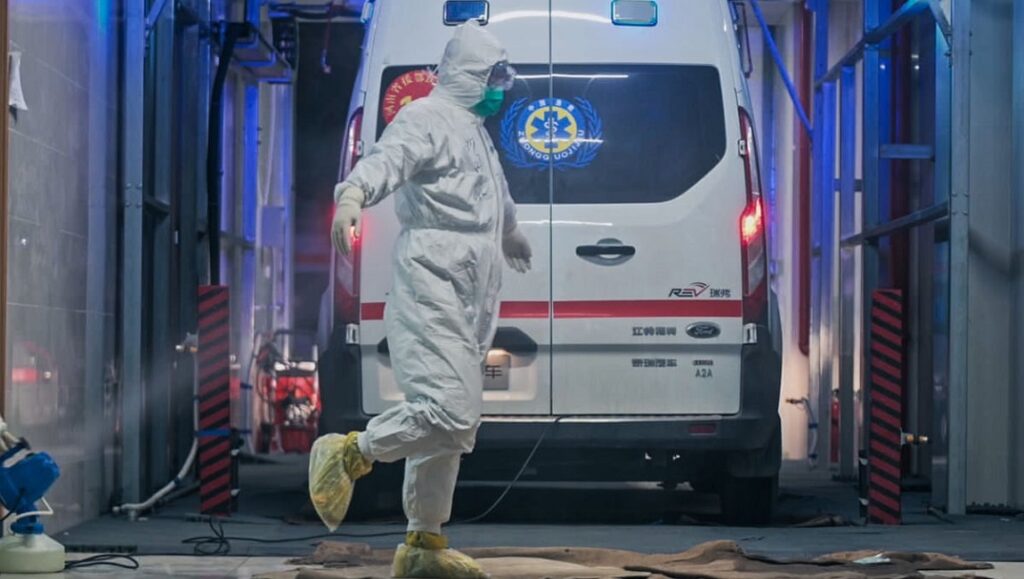The first 30 minutes of CoroNation, Ai Weiwei’s comprehensive snapshot of Wuhan, China in the earliest days of COVID-19’s global devastation, are among the most compelling put to screen this year. By focusing on ground-level human stories — in the opening moments, a couple trying to return home to the city after visiting family is met with police checks, hazmat suits, and governmental lockdown — the director effectively mixes horror, dystopia, and scientific procedural to build a tone of profound unsettlement. This beginning third is especially potent when considered after nearly a year of escalating tragedy and the normalization of protective measures, the early-days efforts at containment bearing the distinct character of science fiction in Ai’s hands; he supplements the close-quarters crises with floating aerial shots of deserted streets and a palette of grey dreariness reminiscent of Children of Men’s particular apocalyptic texture. Following this opening section, as CoroNation progresses, Ai expands the film’s focus and changes up his editing rhythms. The initial tone-setting — accomplished by weaving together concise, impressionistic scenes of confusion and complication with sequences of medical minutiae — gives way to prolonged, domestic-minded interludes that detail the human collateral of such bureaucratic domineering. Although not always expertly weighted or paced, this material is harrowing nonetheless, and the second half’s blunt shift is essential to Ai’s discursive, expansive portraiture, offering a number of profound entry points for considering COVID’s inceptive period. Much has been made of the production’s genesis — the film was edited together from over 700 hours of on-the-ground, often surreptitious footage submitted to Ai and his team — but this is no mere convenience for the Europe-dwelling director, nor is it a gimmick of any sort. The director’s use of such unofficial reportage offers a particularly fascinating opportunity for comparative analysis between Western approaches to the virus fight (particularly America’s bungled, capital-driven response) and China’s more masked strategy. But arguably as important is that this overall strategy also has an affecting congruity with another of the film’s chief concerns: capturing the small-scale tragedies that are lost within any means to an end. The power of CoroNation, then, is found in its multitudes; like any great work, the full scope of its complexity is impossible to contain in any single reading.
Published as part of Top 25 Films of 2020 — 25-11.


Comments are closed.